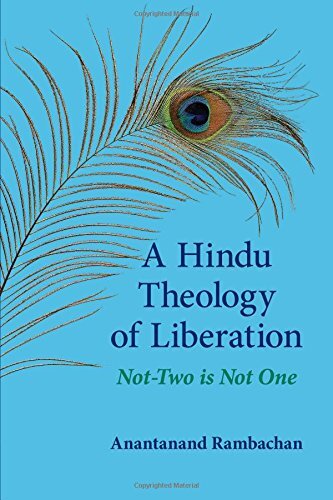BOOKS
ESSAYS IN HINDU THEOLOGY
This work offers a series of theological explorations of themes not usually addressed in standard treatments of the Hindu tradition. Rambachan’s retrieval of these distinctive insights of Hindu theology has implications that extend across the world's religions, and that touches upon key areas of mutual interest and concern. Beginning with a general introduction to the Hindu theological tradition, the book examines several key issues in Hindu theology and its engagement with contemporary religious, social, political, and inter-faith questions, including the theological methods employed in the study of Hinduism, the discernment of vocation, the theological grounds for social justice in the Hindu tradition, religion and nationalism, violence and non-violence, theological resources for interreligious dialogue (especially among Hindus and Christians), hospitality and openness to the stranger, and spirituality and holiness.
In exploring these issues, this study draws deeply from Hindu authoritative sources, but does not limit itself to description. Each chapter is also a work in constructive theology, offering an interpretation of the Hindu tradition appropriate for life in our contemporary world. Essays in Hindu Theology will be of great interest not only to theologians and scholars, but to all who are invested in interreligious understanding and theological engagements with modern challenges.
A HINDU THEOLOGY OF LIBERATION
This engaging and accessible work provides an introduction to the Hindu tradition of Advaita Vedānta and brings it into discussion with contemporary concerns. Advaita, the non-dual school of Indian philosophy and spirituality associated with Śaṅkara, is often seen as “other-worldly,” regarding the world as an illusion. Anantanand Rambachan has played a central role in presenting a more authentic Advaita, one that reveals how Advaita is positive about the here and now. The first part of the book presents the hermeneutics and spirituality of Advaita, using textual sources, classical commentary, and modern scholarship. The book’s second section considers the implications of Advaita for ethical and social challenges: patriarchy, homophobia, ecological crisis, child abuse, and inequality. Rambachan establishes how Advaita’s non-dual understanding of reality provides the ground for social activism and the values that advocate for justice, dignity, and the equality of human beings.
THE ADVAITA WORLDVIEW
In this book, Anantanand Rambachan offers a fresh and detailed perspective on Advaita Vedanta, Hinduism’s most influential and revered religious tradition. Rambachan, who is both a scholar and an Advaitin, attends closely to the Upanisads and authentic commentaries of Sankara to challenge the tradition and to reconsider central aspects of its current teachings. His reconstruction and reinterpretation of Advaita focuses in particular on the nature of brahman, the status of the world in relation to brahman, and the meaning and relevance of liberation.
Rambachan queries contemporary representations of an impersonal brahman and the need for popular, hierarchical distinctions such as those between a higher (para) and lower (apara) brahman. Such distinctions, Rambachan argues, are inconsistent with the non-dual nature of brahman and are unnecessary when brahman’s relationship with the world is correctly understood. Questioning Advaita’s traditional emphasis on renunciation and world-denial, Rambachan expands the understanding of suffering (duhkha) and liberation (moksa) and addresses socioeconomic as well as gender and caste inequalities. Positing that the world is a celebrative expression of God’s fullness, this book advances Advaita as a universal and uninhibited path to a liberated life committed to compassion, equality, and justice.


